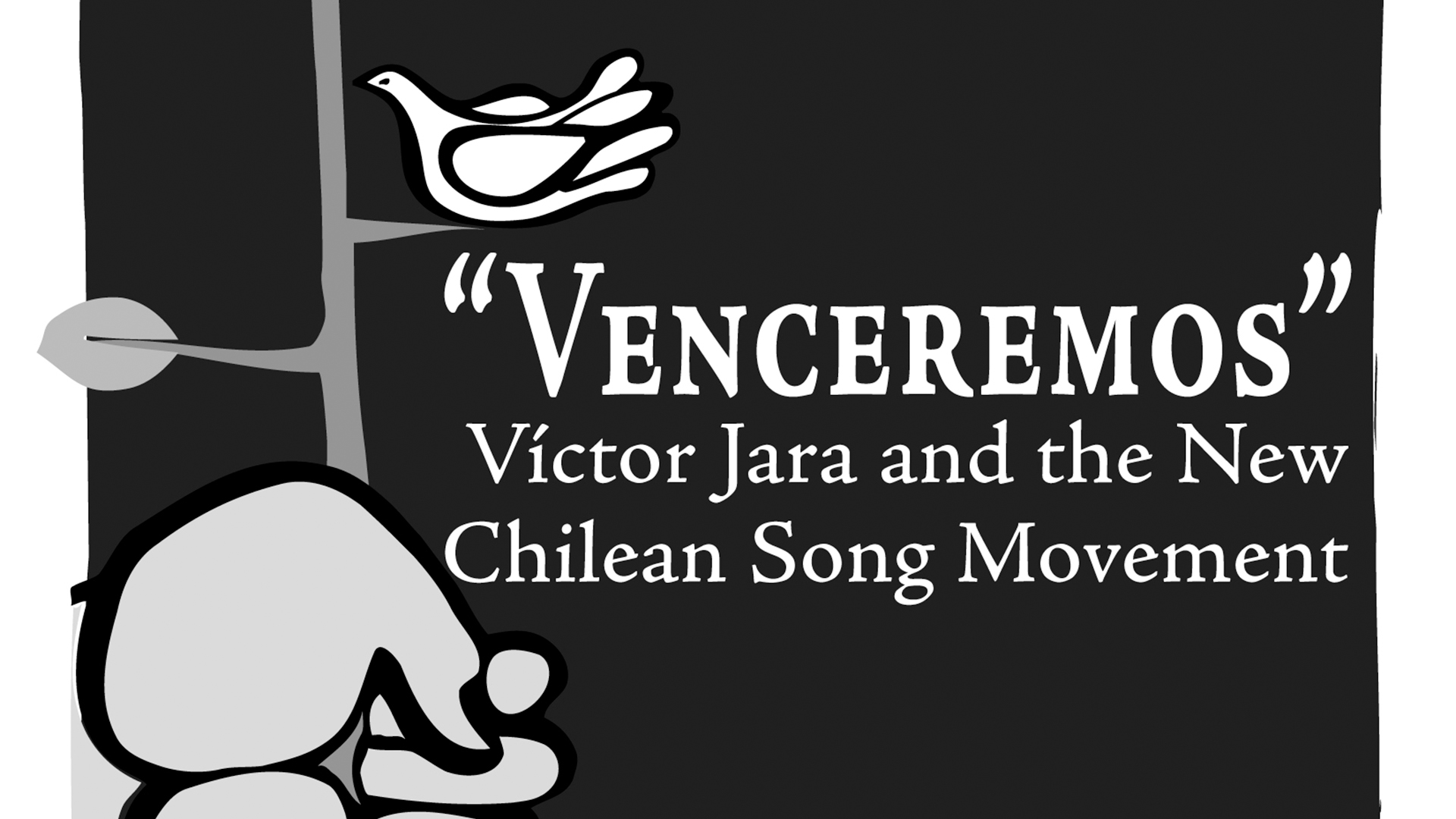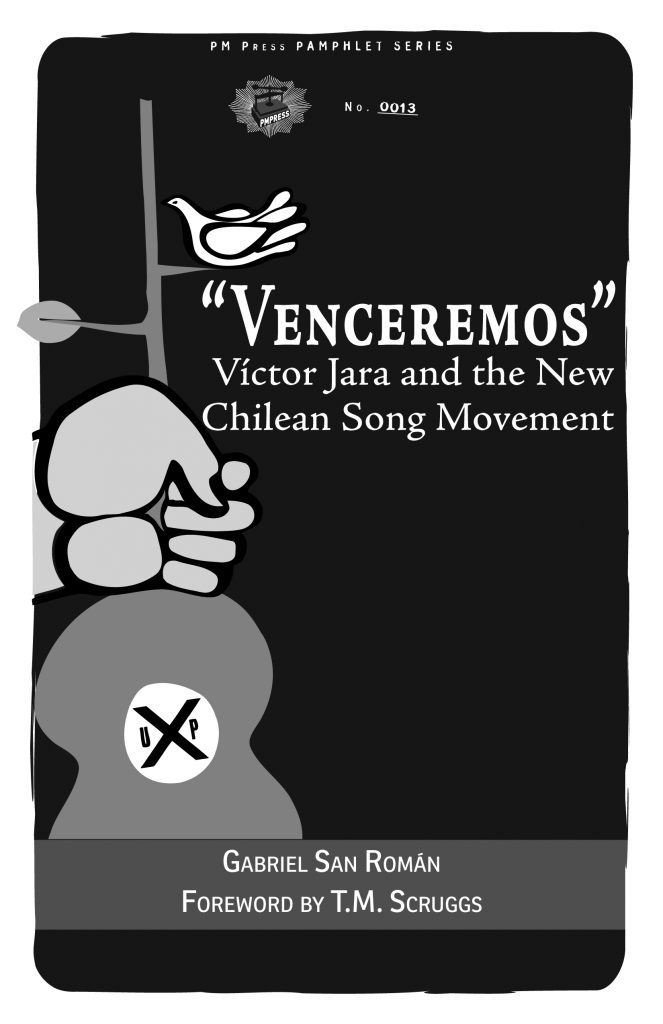A Florida civil court held former Chilean officer Pedro Pablo Barrientos liable for the murder of folk singer Victor Jara, whom Augusto Pinochet had killed 43 years ago
The Real News Network
July 1st, 2016
GREGORY WILPERT, TRNN: Welcome to the Real News Network. I’m Gregory Wilpert joining you from Quito, Ecuador.
On Monday, June 27, a civil court in Orlando, Florida found Pedro Pablo Barrientos guilty for the murder of Chilean folk musician Victor Jara, which happened 43 years ago. The court ordered Jara’s family $28 million in damages. This is an historic decision because it was one of the very rare instances in which victims of human rights abuses sued a perpetrator of the abuse in a U.S. court.
Victor Jara was killed in Chile shortly after Augusto Pinochet’s coup against Salvador Allende in 1973. Jara was a well-known Chilean folk musician and member of Chile’s Communist party at the time. Here’s a clip from his song El derecho de vivir en paz (The right to live in peace).
With us to talk about the guilty verdict in the Victor Jara case is Gabriel San Roman. He’s author of Vinceremos: Victor Jara and the New Chilean Song Movement. He’s also staff writer at the OC Weekly, and followed the case closely. He joins us from Anaheim, California. Thanks for joining us, Gabriel.
GABRIEL SAN ROMAN: Thank you for the opportunity, Gregory, to speak on this important, important legal victory.
WILPERT: Sure. Let’s begin with, exactly with that, with the significance of the trial. What would you say does it mean to have identified and declared guilty one of the killers of Victor Jara now, 43 years after the fact?
SAN ROMAN: We just heard the song El derecho de vivir en paz. And the family of Victor Jara, Joan Jara, his widow, who is 88 years old, his two daughters, Manuela and Amanda, have waited 40 years, more than 40 years, and haven’t had that right to live in peace, as the song says.
And the significance is that this finding of liability is the first time that, in the case of Victor Jara, there’s been any kind of liability and airing of evidence in a courtroom. So it’s truly historic. There’s new details that have been unearthed in the course of the trial. And it is something that is being celebrated in Chile and around the world, because Victor Jara’s legacy spanned not only just Latin America, but other places where freedom song definitely is something to give energy and life and vitality to social movements.
WILPERT: Why do you think it took so long to identify this person? I mean, he’s been living in the U.S. since 1989, according to some reports. And now this is so many years later that he’s finally being held liable. What was the delay in this?
SAN ROMAN: Well, Victor Jara was tortured and murdered in the days following the September 11th coup. And he fell victim in [Estadio Chile], in Santiago. And since that time–Joan Jara found his body on September 18, which is the national celebration of independence for Chile from Spain. And she knows the condition of his body at the time that she saw it. He was riddled with bullets, his hands were broken.
So what that allowed for, because it’s a situation that could have been even worse, she considers herself one of the lucky ones because she was able to recover the body of her husband, instead of him being buried in an unmarked mass grave.
Of course, the dictatorship of Augusto Pinochet lasted for 17 years, and Joan Jara started her journey for justice during the dictatorship. And of course that’s not going to go anywhere. But even after Pinochet loses the plebiscite vote in 1988 there is this immunity for prosecution for actions under the coup. That has weakened a bit, but there’s also been this veil of silence within people who were at Estadio Chile working in the military during the coup. That’s really why it’s taken more than 40 years to get to this point.
WILPERT: Can you tell us anything else about where the case will go from here? It seems unlikely that the family will be able to collect anything from Barrientos, who is supposed to pay $20 million, but from the reports I’ve seen he’s merely a short-order cook right now. Will he remain free, or is there any chance he could go to prison at some point?
SAN ROMAN: Barrientos–it’s a big settlement. Very important and significant amount. Barrientos claims he collects $700 in Social Security and nothing more. He moved his assets, though, into a trust to protect them ahead of the trial, which is very curious, because he knew that he could find himself on the losing end of this. Before the Jara family sued in U.S. court in 2013, the previous year there was an indictment from a Chilean court that is seeking Barrientos and indicting him for murder and torture charges, along with seven others.
Chile has, the Chilean government, has asked the United States to extradite Barrientos since 2013. And for the times that has passed, the United States has not acted on that. How this verdict in a civil trial, where the, the burden or the proof is lower than a criminal trial, will affect that extradition case remains to be seen. I know that–I believe the Los Angeles Times asked the State Department about the status of the extradition request, and they did not offer comment. But there is hope in Chile that this verdict against Barrientos, finding him liable for the torture and murder of the iconic folk singer, will strengthen the hand and persuade the United States to send Barrientos back to Chile, where he can face criminal trial, and a greater–and the family can get a greater, a greater degree of justice to be served.
WILPERT: Let’s place Victor Jara’s murder in its historical context. He was killed just as Pinochet was consolidating power after he overthrew Salvador Allende in a brutal coup. Why was Jara so important for Pinochet?
SAN ROMAN: Victor Jara, the significance of this case is due to the significance of Victor Jara’s music and his status in Chile. And this was well-established in the trial, too, with expert witnesses who said that the movement, La Nueva Cancion Chilena, was very key to the successes and the morale of Unidad Popular, the governing coalition of Salvador Allende. Therefore, when Jara is taken to Estadio Chile and recognized because of his publicity, he is beaten and he is taunted as the trial–[inaud.] testified in video testimony. Part of that included stepping on his hands, and then definitely stomping on his wrists to break them so that he could not play the guitar ever again. So the torture took on elements that targeted him specifically as a folk singer.
And Victor Jara was born in Lonquen, which was outside of Santiago, to a peasant family where his mother was a true, true folk singer, singing at wedding parties and at funeral rites. The kind of music that the [inaud.] would later come in and document as the godmother of La Nueva Cancion. And so as the politics of Chile progressed, Allende had a different number of presidential bids that were unsuccessful. But during the ’60s, as 2 million politics were changing, the music changed along with it. And folk singers began to emerge out of [benas]. They began to utilize poetry. Of course, Pablo Neruda was still around, and offering his poetry in this cultural renaissance during that time that accompanied the political renaissance.
So Victor Jara very much emerged as the main protagonist of La Nueva Cancion Chilena. And he sang songs of hope. He sang songs of protest. He really documented the ups and downs of the Chilean left. And at the time of the coup he was singing songs that were, that included lyrics that indicated that he knew that he could die, and that he would die truthfully, singing his song. And that’s how history recalls him.
WILPERT: Well, I think this is a very important case, and we will certainly want to see if anything more develops, and we’ll probably get back to you if there are new developments in this case. So anyway, thanks so much, Gabriel, for joining us on this issue.
SAN ROMAN: Thank you, Gregory. My pleasure.
WILPERT: And thank you for watching the Real News Network.
End
DISCLAIMER: Please note that transcripts for The Real News Network are typed from a recording of the program. TRNN cannot guarantee their complete accuracy.







